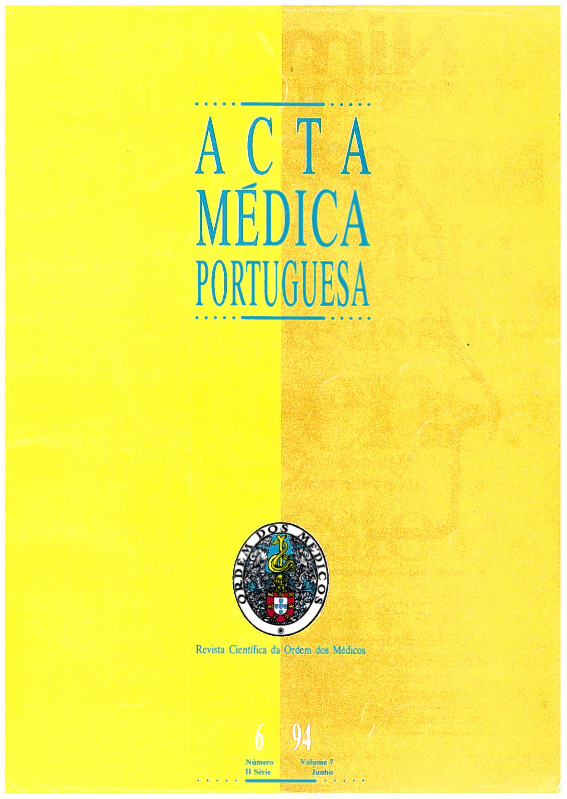Júlio Dantas and medical archaeology.
DOI:
https://doi.org/10.20344/amp.4129Abstract
Júlio Dantas (1876-1962), was a doctor of very restricted practice. Literature was his great passion, and projected him to a place in the Academy and to an interesting diplomatic career. Dantas, an archaizing and baroque writer who lived in the first times of the modernistic trends, became the object of a vivid controversy. We must, however, recognize he was the most successful of the popular playwrights in Portugal, having sold over two hundred thousand copies of his most known play. In Dantas', somewhat irregular work there are very beautiful pages of prose. The retrospective study of the diseases that afflicted the Portuguese kings is the subject of a collectanea of papers, published by Júlio Dantas in 1909, under the title Medical inquiries to the portuguese royal genealogies-Avis and Bragança. The book is within the limits of the so-called medical archaeology, a mix of history and speculation. Dantas presents a generic thesis of degeneration of the royal dynasties of Portugal, explained as natural consequence of heredity and consanguinity. Between the 13th. century and the beginning of the 1800s, monarchs and princes are implacably flagelatted, because of their physical diseases or moral faults. Isabel of Aragon, the saint-queen; prince Henry the Navigator; even the national hero, the constable Nun'Alvares, as many others, do not escape the severity of an analysis which, in most cases, is not medically accurate.Downloads
Downloads
How to Cite
Issue
Section
License
All the articles published in the AMP are open access and comply with the requirements of funding agencies or academic institutions. The AMP is governed by the terms of the Creative Commons ‘Attribution – Non-Commercial Use - (CC-BY-NC)’ license, regarding the use by third parties.
It is the author’s responsibility to obtain approval for the reproduction of figures, tables, etc. from other publications.
Upon acceptance of an article for publication, the authors will be asked to complete the ICMJE “Copyright Liability and Copyright Sharing Statement “(http://www.actamedicaportuguesa.com/info/AMP-NormasPublicacao.pdf) and the “Declaration of Potential Conflicts of Interest” (http:// www.icmje.org/conflicts-of-interest). An e-mail will be sent to the corresponding author to acknowledge receipt of the manuscript.
After publication, the authors are authorised to make their articles available in repositories of their institutions of origin, as long as they always mention where they were published and according to the Creative Commons license.









